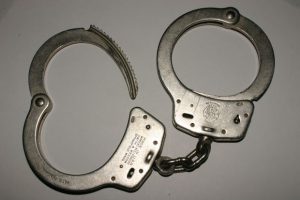Thousands of individuals convicted on potentially tainted scientific evidence have been waiting years for the chance to clear their name, ProPublica recently reported. 
Four years ago, a long-time chemist working at a state drug laboratory in Massachusetts admitted to contaminating samples over the course of her nearly nine-year career, resulting in more than 20,000 drug crime convictions that could have potentially been flawed. Those cases involved people from all across the nation and from eight different countries. In many cases, defendants were jailed. In some cases, defendants were deported. At the time, prosecutors insisted to the governor that addressing any possible breaches of justice would be priority No. 1.
Unfortunately, that has not proven to be true. Four years later, and prosecutors have battled to hang onto pretty much every single conviction garnered with this flawed evidence. Meanwhile, defense attorneys arguing on behalf of potentially innocent defendants are asking courts to vacate all the convictions that relied to any substantial degree on that lab worker’s tainted results.
When defense attorneys tried to have their clients freed from jail or prison pending review of their cases, prosecutors fought it.
At one point prosecutors argued they had no obligation to inform convicted defendants of the possibility that they could be found legally innocent. Still, they did make efforts to inform all the defendants – though it took them four full years. However, in many cases, those formal notices often lacked key information about why recipients were getting the notice and also, the Spanish on the paperwork was “poorly translated.” The notices didn’t make it clear in the Spanish versions who had sent the letter. Further, about 6,000 notices – more than a quarter – were returned as having been unable to be delivered.
One prosecutor was reportedly on record as suggesting that a number of the defendants were either too poverty-stricken or mired in addiction or mental illness to care about whether their convictions should be contested.
Many of the defense lawyers who have pressed these cases have prevailed, and defendants are having to bring their cases before a court one-by-one.
And perhaps the most troubling aspect about this is that prosecutors here have been faced with the very real possibility that there are possibly thousands of people who were wrongly convicted. Yet efforts by prosecutors to correct this have been as vigilant as they should have been.
Prosecutors are insisting they aren’t dragging their feet. A spokeswoman for the District Attorney’s Office in the Essex District said she would be “shocked” if there are drug dealers in the area who hadn’t heard about the case. Defense lawyers are calling foul, though, arguing that if these defendants really are guilty, then the onus is on the prosecutors to obtain a proper conviction not tainted by phony or misleading evidence. At the very least, they argue, prosecutors shouldn’t be fighting to preserve these convictions.
Of course, Massachusetts hasn’t been the only place where the work of crime laboratories has been called into question. Other high-profile incidents have been reported in Texas, Minnesota, Oklahoma, Nevada and California. These cases have underscored that the results of chemical, DNA and testing at crime labs aren’t necessarily as bullet-proof as they are held up to be in court. Our drug crime defense lawyers in Fort Lauderdale know this evidence has to be carefully examined and appropriately challenged.
Call Fort Lauderdale Criminal Defense Attorney Richard Ansara at (954) 761-4011. Serving Broward, Miami-Dade and Palm Beach counties.
Additional Resources:
Thousands of Potentially Wrongful Convictions; Years of Delayed Action, Nov. 10, 2016, By Patrick G. Lee, ProPublica
More Blog Entries:
Report: Marijuana Arrests Outnumber Those for Violent Crimes, Nov. 2, 2016, Fort Lauderdale Defense Attorney Blog
 Fort Lauderdale Criminal Attorney Blog
Fort Lauderdale Criminal Attorney Blog


